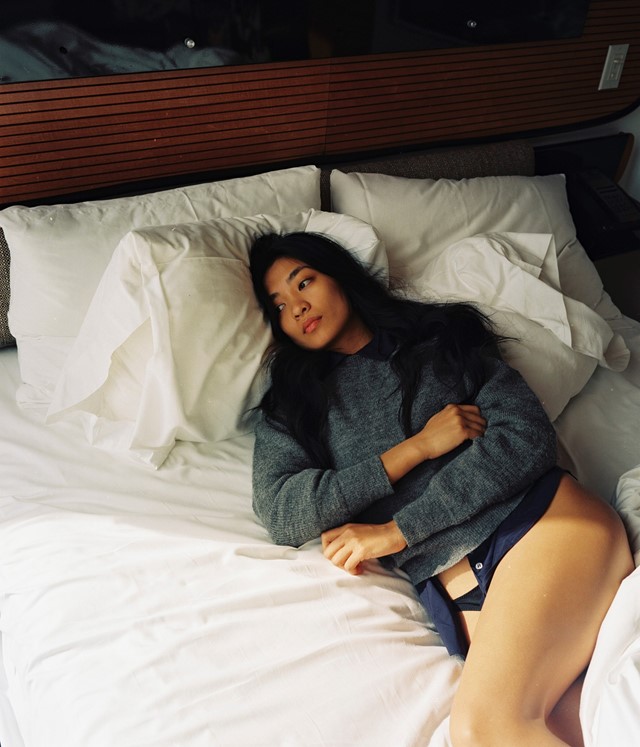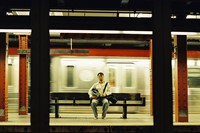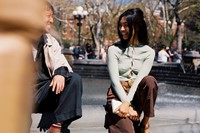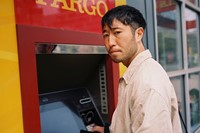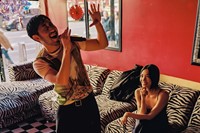Gabriel Chiu’s melancholic new photo series, High and Dry, tells the story of Asian immigrants who uproot and move to the US every day
Sofia Coppola’s Lost in Translation is considered to be one of the best romance films of the 2000s, though, ironically, there is hardly any romantic action in it at all. Set against the backdrop of Tokyo, Japan, the story follows two lonely American protagonists – fading middle-aged actor Bob Harris (Bill Murray) and college graduate Charlotte (Scarlett Johansson) – who connect through their mutual alienation in a foreign land. Through sleepless nights and disorientation, the pair find an unexpected belonging in each other, though their quietly growing romance doesn’t take off on screen. New York-based photographer Gabriel Chiu’s beautiful new series, High and Dry, flips the script on Coppola’s cult 2003 film – instead capturing an Asian couple lost, lonely, and in love in New York.
“It’s the modern love story: two immigrants, specifically Asians, who’ve come to America and find each other,” says Chiu, who grew up in Boston as part of a first-generation Chinese family. “They’re dealing with American culture and values and trying to transition; they don’t speak the language, they left everything behind to start a new life, and they’re just trying to figure it out.” Capturing scenes of melancholy, intimacy, and joy in cinematic locations in New York – from bustling streets to hotel rooms – the story stars a friend of Chiu’s, Yashel, and an older man, Billy. Drawing another parallel with Coppola – who tried tirelessly to recruit Bill Murray for her feature for over a year, and blew a quarter of the film’s budget casting him without knowing if he would turn up in Tokyo to shoot – Chiu says he also found it challenging to cast the male role. “Older generations in the Asian community are not really into being photographed,” he says.
Chiu discovered photography after moving to New York to pursue a career in fashion, where he worked as a junior creative director at Needles while taking pictures of his own designs on the side. “I noticed people gravitated to the photos more than the actual clothes,” he says of the switch to photography. “I kind of just ran with it and fell in love with it.” After a stint interning for Mario Sorrenti, Chiu released his debut photo story at the start of this year – another reimagining of a cult American film with an all-Asian cast: this time, Larry Clark’s controversial 1990 movie, Kids. In Chiu’s beautifully-shot Asian Kids, a group of Asian American teens are captured letting loose in New York city – drinking, making out, smoking on subway trains and being sick in toilets. The series, he says, aimed to overturn “scholastic” and “conservative” stereotypes connected to Asian teens. “It’s important to present normality,” he says. “That’s what I’m trying to do.”
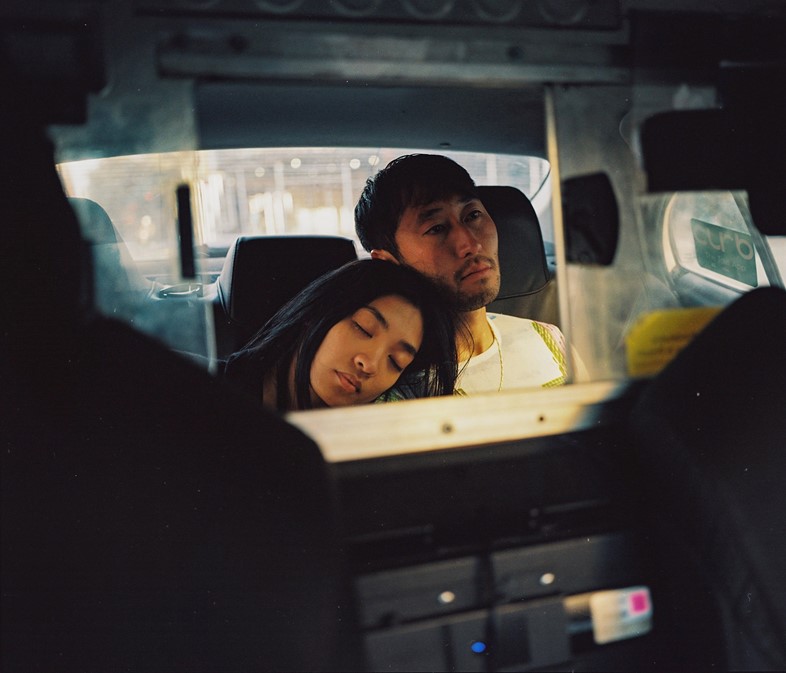
Chiu’s new series, while based on Lost in Translation, also tells the very real story of immigrants who uproot and move to the US every day, illustrating how difficult adjusting to life in a new country – and particularly America – can be. “It’s basically based on true events, like my family, as this really happened to my mum and my dad and many other families that I know,” explains Chiu, whose parents immigrated from Hong Kong before meeting in Boston. “Watching the film just made me think of my own life.”
Both High and Dry and Asian Kids aim to shed new light on the Asian American experience – something which is of paramount importance to Chiu, who often felt isolated by the lack of representation in popular media as a teen. “Growing up I didn’t have much to look up to, I didn’t have any images to see,” he says. “I was always that kid who was smoking weed and drinking, being the token Asian kid in all types of groups. I struggled with my identity because there was no one like me around.” This search for connection is the running thread through Chiu’s highly personal work, and is something he hopes to offer other young Asian Americans who see his photos: “I want to put that out there, so kids like me feel normal.”
